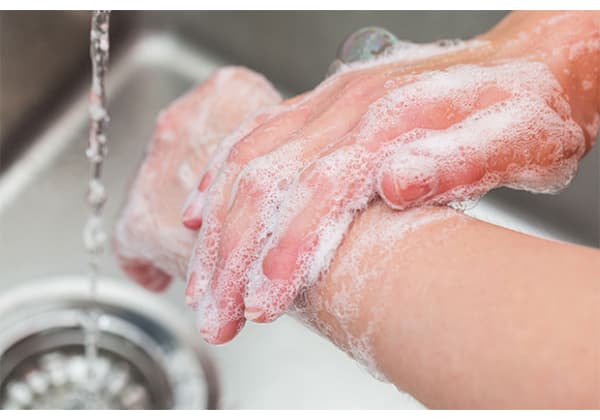- Published 24 Jan 2023
- Last Modified 29 Aug 2023
- 8 min
A Guide to Degreasers and Cleaners
An expert guide on degreasers, helping you understand how to use them safely and the different types available.

What is Degreaser?
Degreasers are powerful cleaning solutions designed to degrease surfaces and objects by removing grime, oil, gunk and other stubborn contaminants.
Many commonly used degreasers are water-based while the stronger varieties contain potent chemical solvents. Thanks to their strength and versatility, they are widely used in commercial and industrial environments but are also available for domestic use.
Why Use a Degreaser?
Degreasers are used for removing greasy or oily residue from hard surfaces. They are specially formulated for this task.
Contaminants are clearly unacceptable in a working environment, whether they are left by spills, routine procedures or simply fingerprints. They can present a slipping hazard and also cause overheating, interference and corrosion in machinery.
These cleaning products can be used both for manual cleaning and in automated cleaning systems. Some varieties can be applied either as degreaser concentrate or diluted with water.
Alternative names include:
- Maintenance cleaners
- Brake cleaners
- Precision cleaners
Degreaser Buying Guide: What to Look Out for
Are degreasers toxic? Some certainly are. Before using or purchasing, examine the ingredients list or datasheet carefully to ensure safe handling, especially if you plan to use the product for manual cleaning.
Some varieties do contain flammable solvents and alcohols - for example, isopropyl alcohol (IPA). These blends create effective and inexpensive industrial cleaners but should not be used without decent ventilation to disperse the fumes - nor should they be used on hot surfaces, near flames, or in the vicinity of any process that generates sparks (such as welding or metal cutting). The packaging should contain information on the flammability of the product.
Non-flammable degreasants typically cost more, and while they do not present the above hazards, they still frequently contain highly toxic solvents or similar substances. Prominent examples include:
- Perchloroethylene (Perc)
- Trichloroethylene (TCE)
- N-propyl bromide (nPB)
These deliver cleaning power but exposure to high levels of toxicity can lead to various health problems. Manual cleaning clearly presents a high risk of exposure, so do proceed with caution if the product contains toxic substances.
If you plan to use the cleaner on live electrical equipment, check its dielectric strength. This is a measure of the degreaser’s resistance to electricity. Always look for a higher strength as a lower rating means that electric current will quickly flow through the liquid and short out the machinery.
You should also consider the types of material you plan to apply degreaser to as some can attack the material you are using them on. You need to make sure that the degreaser is compatible with the surface in question. For example, some solvent-type heavy-duty degreasers may attack plastics. This would make them weak and tacky, leading to premature failure. If unsure, test before use.
Degreasers can have a negative environmental impact. Some emit polluting particles known as volatile organic compounds (VOCs) or contain toxic chemicals or solvents. In most countries, these are subject to strict regulations. By contrast, water-based solvents do not contain harsh chemicals and so are much kinder to the environment, biodegradable and of course, non-flammable.
Types of Degreasers
Different types are suited to different tasks. Let’s take a look at the principle varieties.
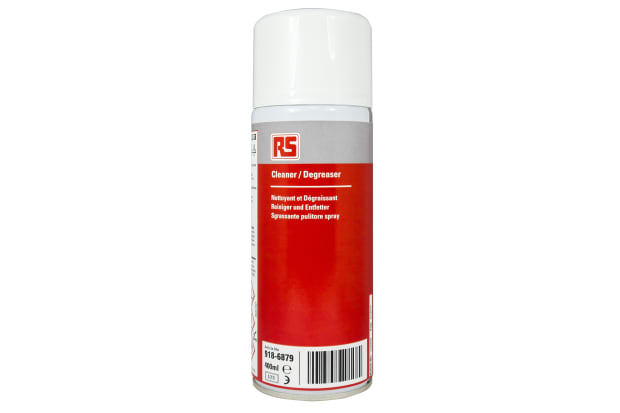
Solvent-Based Degreasers
Solvent-based degreasers are designed for demanding industrial and commercial environments and usually contain chemical solvents. These are substances which will break down other materials and form a solution. You will find these heavy-duty cleaners in garages, factories, and engineering depots where a build-up of grease or oil is commonplace. They are typically supplied as aerosols for ease of use.
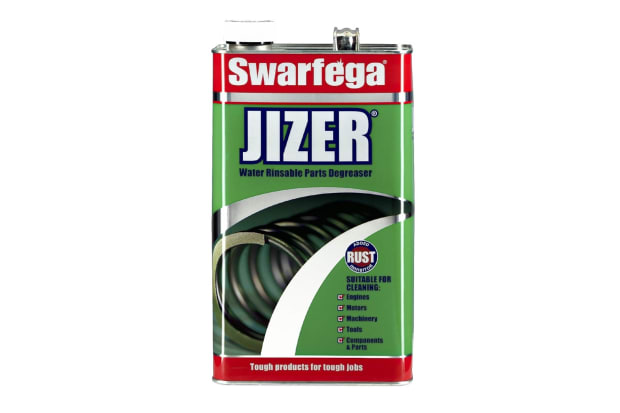
Water-Based Degreasers
Water-based degreasers are a milder variety, usually used when strong solvents would be unnecessary. They are usually supplied in spray bottles for manual use, but are also available in larger quantities for automatic immersion and batch cleaning systems.
Typical uses for this cleaner include:
- Food and beverage preparation
- Processing agricultural products
- Domestic cleaning
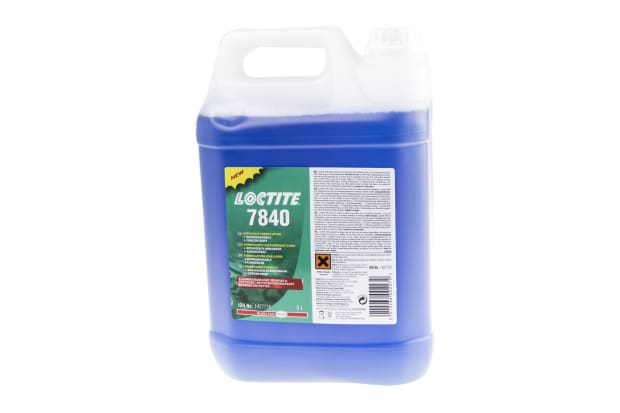
Biodegradable Degreasers
Biodegradable or natural degreasers do not contain the environmentally-unfriendly artificial chemicals found in solvent cleaners. Instead, these cleaners contain a mix of eco-friendly, non-hazardous ingredients which will degrade harmlessly if washed into the soil or water supply. They still offer worthwhile cleaning power and will make short work of lighter gunk and oil stains, food spills, soot and even mildew.
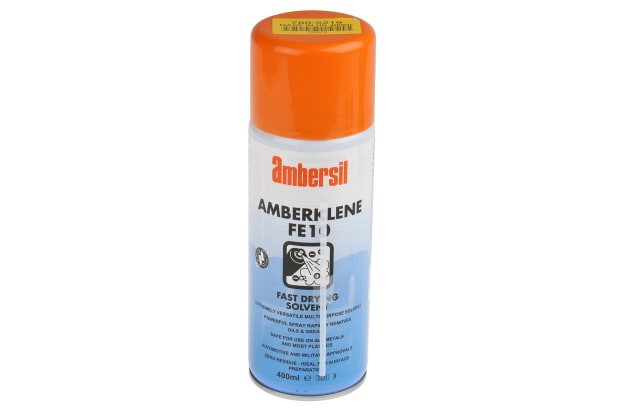
Fast-Drying Degreasers
Fast-drying degreasers are used for quick-turnaround tasks that require rapid evaporation to minimise downtime. Typical examples include factory machinery and tooling equipment, pumps and generators.
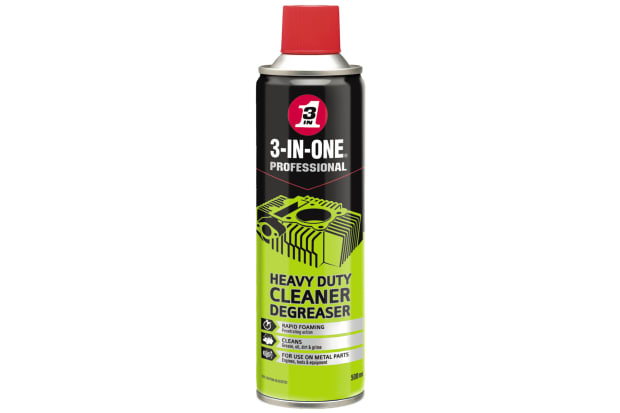
Multi-Purpose Degreasers
A multi-purpose degreaser offers convenience and flexibility to users who may have varying grease-cleaning needs over the course of the working day. However, although all-purpose products are handy, they do not offer quite the same power as more specialised varieties.
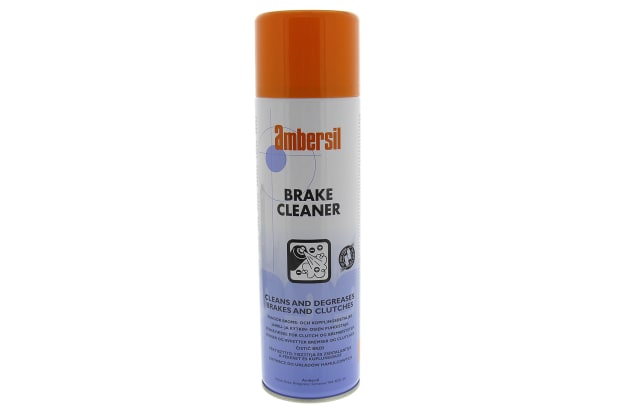
Aerosol, Spray and Can Degreasers
Aerosol degreasers allow rapid and easy application to the affected surface - just point and spray. They are typically fast-acting and powerful with a penetrating spray. They make a good choice for quickly cleaning mission-critical machinery.
Spray degreasers are a more environmentally-friendly water-based alternative. They are safer for users as they contain no hazardous solvents. Sprayer degreasers can be applied to a wide range of washable surfaces, including glass and plastic.
Can degreasers are supplied in canisters ranging in size from one litre to as many as 25, making this format ideal for those who routinely use large quantities.
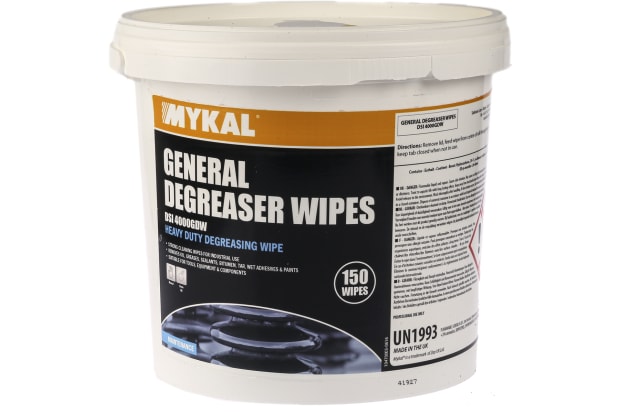
Tub and Bottle Degreasers
Tub degreasers are an innovative alternative to other formats. They contain a supply of ready-to-use wipes pre-treated with a rapid-drying solvent degreaser, so no rags, sprays, cans or bottles are needed.
Meanwhile, bottle degreasers are another format ideal for those who routinely use larger quantities and so need a good supply. They are typically five litres and upwards in size.
What are Degreasers Used for?
Degreasers have a wide variety of applications:
Automotive and Transport
Engine degreasers are used by mechanics, automotive and rail engineers to clean:
- Engines
- Car and vehicle parts
Consumers also use domestic strength cleaners for:
- Basic car maintenance
- Bikes and bike chains
Mechanical, Industrial and Tooling
In mechanical, industrial and tooling environments, they are used to mop up grease, tar and oil residue, along with contamination caused by handling (e.g. fingerprints). However, they are also effective with the many specialist industrial fluids used in a multitude of machinery. Examples include corrosion inhibitors and cutting lubricants.
Automated cleaning systems are widely used in such settings and these may feature vapour-based degreasers and even ultrasonic technology. The latter makes use of high-frequency ultrasound to dislodge and move fluids.
Food and Beverage
Food preparation can be messy, leaving spills and residue in pans and baking trays, in ovens, on cooker tops and even floors. In high traffic commercial kitchens, this could be both unsanitary and potentially hazardous.
The best UK kitchen degreasers are easy to apply but offer sufficient cleaning power to quickly remove stubborn grease and large spills. Commercial kitchens will require professional-grade, heavy-duty degreasers while lighter sprays may suffice for domestic kitchens. It is vital to ensure that the chosen sanitiser or degreaser is food safe and entirely free from the chemicals typically found in industrial degreasers.
Agriculture
On farms and in agricultural warehouses, degreasers have an important role to play in ensuring that vehicles and sorting equipment operates smoothly and contamination is quickly removed. Clean water-based, food-safe degreaser sprays are the go-to choice in such environments.
Manufacturing
Most manufacturers rely on fast-moving, precisely-calibrated production equipment which cannot be taken offline for lengthy cleaning sessions without causing significant disruption. Fast-drying degreasers allow spills and contamination to be quickly removed without major downtime.
FAQs
How Do You Remove Grease from Metal?
- Select a suitable product. If there is a large quantity of grease or it is particularly viscous, a stronger solvent-based variety may be the best choice. If there is only a limited quantity, a water-based degreaser may suffice
- Scrape or wipe as much of the grease away as you can, using a scraper or paper towels
- Apply to the greasy surface and scrub the target vigorously with a cloth until the grease has been dispersed and absorbed
- Clean the cloth and scraping device
What is Degreaser Made from?
Degreasers are made from various natural and artificial ingredients, carefully blended to create an alkaline solution. Alkaline solutions contain a higher number of hydrogen ions - those with fewer are acidic.
Grease in all its forms is ultimately produced by living organisms, and organic substances respond best to alkaline solutions because these break down the chemical structure of oils and fats very effectively. This can be boosted by adding solvents. These can be artificial or entirely natural. For example, citrus-based products often make capable solvents.
Are Degreasers Safe to Use?
It depends. Degreasers can be broadly divided into water and solvent-based varieties. Water-based degreasers are milder and typically contain mostly natural ingredients, making them suitable for use in the food and beverage industry.
By contrast, solvent-based degreasers contain strong chemicals and can be hazardous. Some are flammable and others emit hazardous fumes. Always read instructions carefully and use suitable personal protective equipment such as a face mask when required.

